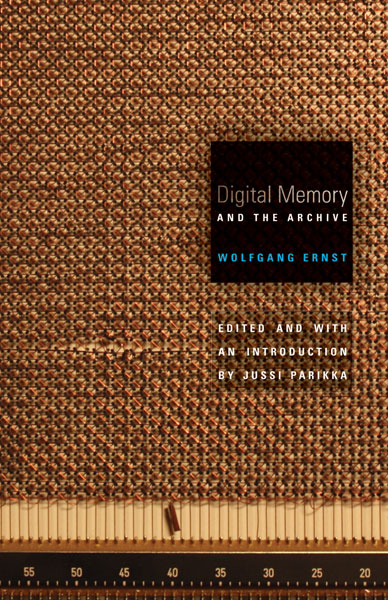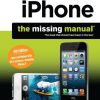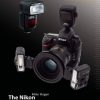(EBOOK PDF)Digital memory and the archive 1st Edition by Wolfgang Ernst 0816677662 9780816677665 full chapters
$50.00 Original price was: $50.00.$35.00Current price is: $35.00.
Digital memory and the archive 1st Edition by Wolfgang Ernst – Ebook PDF Instant Download/Delivery: 0816677662, 9780816677665
Full download Digital memory and the archive 1st Edition after payment
Product details:
• ISBN 10:0816677662
• ISBN 13:9780816677665
• Author:Wolfgang Ernst
In the popular imagination, archives are remote, largely obsolete institutions: either antiquated, inevitably dusty libraries or sinister repositories of personal secrets maintained by police states. Yet the archive is now a ubiquitous feature of digital life. Rather than being deleted, e-mails and other computer files are archived. Media software and cloud storage allow for the instantaneous cataloging and preservation of data, from music, photographs, and videos to personal information gathered by social media sites.
In this digital landscape, the archival-oriented media theories of Wolfgang Ernst are particularly relevant. Digital Memory and the Archive, the first English-language collection of the German media theorist’s work, brings together essays that present Ernst’s controversial materialist approach to media theory and history. His insights are central to the emerging field of media archaeology, which uncovers the role of specific technologies and mechanisms, rather than content, in shaping contemporary culture and society.
Ernst’s interrelated ideas on the archive, machine time and microtemporality, and the new regimes of memory offer a new perspective on both current digital culture and the infrastructure of media historical knowledge. For Ernst, different forms of media systems—from library catalogs to sound recordings—have influenced the content and understanding of the archive and other institutions of memory. At the same time, digital archiving has become a contested site that is highly resistant to curation, thus complicating the creation and preservation of cultural memory and history.
Digital memory and the archive 1st Table of contents:
Part I: The Media-Archaeological Method
Let There Be Irony: Cultural History and Media Archaeology in Parallel Lines
A discussion on how media archaeology runs parallel to cultural history but with an ironic twist, perhaps challenging traditional historiographies by focusing on media’s materiality and technology.
Media Archaeography: Method and Machine Versus the History and Narrative of Media
This might introduce media archaeography as a method, emphasizing the tension between technological objects (the machine) and the narrative or historical frameworks we use to understand them.
Part II: Temporality and the Multimedial Archive
Underway to the Dual System: Classical Archives and Digital Memory
This section would compare traditional (classical) archival methods with modern, digital archives, addressing the impact of the digital shift on memory and storage.
Archives in Transition: Dynamic Media Memories
Exploring how archives are no longer static but dynamic, constantly evolving with new media technologies, allowing for more fluid and interactive engagements with historical materials.
Between Real Time and Memory on Demand: Reflections on Television
This would likely address how television, as a media form, occupies a unique space between real-time broadcast and the ability to retrieve media content “on demand,” shaping our relationship with memory and time.
Discontinuities: Does the Archive Become Metaphorical in Multimedia Space?
A critical examination of whether traditional notions of the “archive” still hold relevance in the age of multimedia, where fragmented and networked media formats challenge linear or static archive structures.
Part III: Microtemporal Media
Telling Versus Counting: A Media-Archaeological Point of View
This could address the difference between qualitative storytelling and quantitative metrics (such as data collection), and how each approach interacts with media archaeology.
Distory: One Hundred Years of Electron Tubes, Media-Archaeologically Interpreted, Vis-à-Vis One Hundred Years of Radio
“Distory” suggests a deconstruction of history, perhaps exploring how technological innovations (like electron tubes) shaped media (like radio) over the course of a century, framed through media-archaeological analysis.
Toward a Media Archaeology of Sonic Articulations
A media-archaeological exploration of sound media and how sonic technologies (such as early radio or phonography) can be interpreted through the lens of materiality and temporality.
Experimenting with Media Temporality: Pythagoras, Hertz, Turing
Likely a discussion of influential figures in the history of media and technology, such as Pythagoras (mathematical foundations of sound), Hertz (electromagnetic waves), and Turing (computation), whose work has shaped the media-archaeological understanding of time and media.
Appendix: Archive Rumblings: An Interview with Wolfgang Ernst / Geert Lovink
An interview where Wolfgang Ernst, a key figure in media archaeology, discusses his ideas and work with Geert Lovink. The “rumblings” may refer to the disruptive or emergent aspects of media archaeology as a field.
People also search for Digital memory and the archive 1st:
digital memory and the archive
wolfgang ernst digital memory and the archive
wolfgang ernst digital memory and the archive pdf
ernst digital memory and the archive
digital memory and the archive pdf
Tags:
Digital memory,the archive,Wolfgang Ernst




